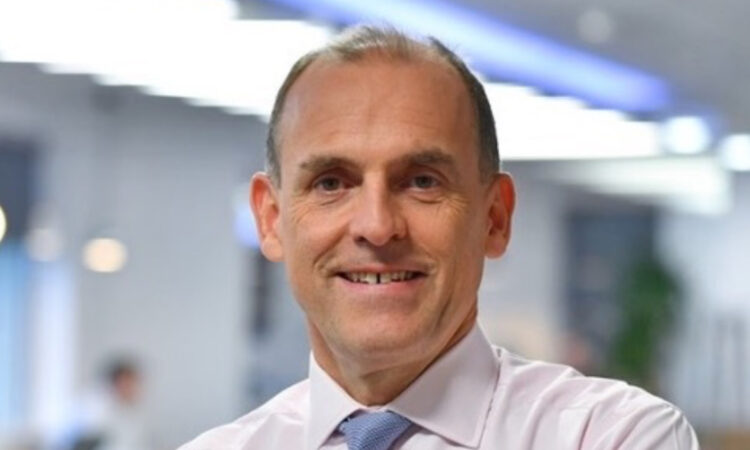
Paul Pester, the chairman of Tandem Bank, is working with CEO Alex Mollart to push the challenger bank to the forefront of sustainable, online-only banking in the U.K.
Tandem’s strategy is part of a bigger shift in consumer banking, spurred in part by the unbundling of financial services and the rise of fintech. With open banking allowing third parties to access consumer data (with permission), a wide range of technology-driven startups can now build tailored financial tools.
“We’re about to see another revolution in enabling consumers to get even with the bank in terms of accessing information, and getting better deals as a result,” says Pester.
Banks have historically relied on information asymmetries to profit off customers, obscuring fees and making it difficult to comparison shop, but new data-sharing and AI capabilities put power in the hands of consumers.
The old-line banks will be disrupted by “a tier of data-driven, customer-facing businesses that own the customer relationship and will extract an immense amount of margin out of the banks,” argues Pester.
Fintech Innovation
The early signs of this phenomenon are already here in the U.K., which has emerged as a global leader in fintech. The fintech sector, encompassing mobile banking, lending, payments and investing, is estimated to contribute roughly $13.4 billion and over 76,000 jobs to the U.K. economy as of late 2023.
Tandem, with Paul Pester as chairman since 2022, has joined the ranks of disruptive challenger banks aiming to take on the big incumbents. Under Pester and CEO Alex Mollart’s leadership, the bank has undergone a notable green pivot.
“We want to help mainstream customers reduce their carbon footprint and save them money at the same time,” says Pester.
By all accounts, it’s working. Tandem has seen accelerating customer growth, profitability and even broke into the top-ranked finance category on TikTokwith its money-sharing app Loop, which allows users to build credit histories through microloans with friends and family. Since its 2023 acquisition by Tandem, Loop has helped attract younger, sustainability-minded customers.
The bank’s rising prominence comes as forward-looking projections suggest that fintech innovation will only pick up speed. According to estimates by industry groups, the U.K. fintech sector could double its number of firms by 2030.
Demand for Sustainability
Driving much of this growth is consumer demand for sustainable products and services, particularly among younger demographics. In Tandem’s 2023 report on the “green gap” between environmental intentions and measurable progress, 61% of respondents cited concerns about climate change while 40% expressed interest in reducing their personal environmental impact.
The report highlighted some encouraging gains in areas like renewable energy installation and electric vehicle adoption. But the analysis still projected a persistent 23% green gap between consumer intentions and reality for October 2024 projections.
“Despite the improving picture though, the fact does remain that the green gap persists — and unless extra support and action is taken at a macro level, consumers’ actions will not marry up to their good intentions,” Mollart said upon the report’s release.
Pester argues that sustainable banking, powered by open data sharing and fintech customisation, can help bridge this divide.
Through green lending products for low-emission vehicles and energy-efficient home upgrades, along with green savings accounts that fund renewable initiatives, Tandem aims to give customers easy, affordable ways to act on their environmental values.
The bank has also developed carbon footprint tracking tools, providing “insights into their carbon footprint based on their spending patterns.” If consumer spending matched their stated desire to curb emissions, Pester believes fintech can reduce the friction.
Paul Pester’s Trajectory
Pester’s Tandem appointment reflects his evolution from a career focused on digital banking innovation at retail giants like Virgin to the new realm of purpose-driven financial services.
It’s a transition mirrored across the sector, driven by changing consumer values and technological forces. A recent PWC survey found that 46% of consumers are consciously choosing more sustainable options.
A bank focused solely on pushing plastic or racking up overdraft fees would quickly lose legitimacy with a public that now demands that financial services better align with sustainability goals and community impact.
Pester views his role as adapting Tandem to these market dynamics and the fintech wave, citing exciting developments in banking technology that will disrupt the sector in the near future.
“It’s the combination of two things: open banking and AI,” he says. “What AI will enable businesses to do is build another intelligence layer very much like the personal comparison websites did at the turn of the century.”
Informed observers believe Pester is well suited for shaping the bank’s strategic direction. He previously led the creation of TSB Banking Group, guiding it to a successful public offering and eventual sale. More recently, his fintech startup Loop demonstrated early traction with Generation Z before being acquired by Tandem.
This tech-savvy background — coupled with the green transformation at Tandem and the company’s commitment to digital banking options — sets the stage for the development of a modern, forward-looking financial services firm.
While Tandem is still relatively small compared to major U.K. banks, its moves suggest the burgeoning potential of purpose-driven challenger banks and fintechs to disrupt the sector through sustainability leadership.
By appointing an outspoken evangelist of data-driven banking like Pester, Tandem seems to be getting ahead of what it sees as the future of consumer finance: a mobile world where eco-conscious customers can more seamlessly align their spending, saving, and investing decisions with sustainable outcomes.
“As a company, you have to be really clear on what problem you’re fixing for your customers,” says Pester. “Tandem believes its customers care about the need to transition to a carbon-neutral lifestyle, and it has designed products to speak to that need.”






